Learn Aerial Skills, Invert, Balance, Climb, Spin + Twizzle.
Ages 6-13yrs. 15th & 16th January 2026
Go to - zerocentralcircus.com.au for bookings
The SROCKETS School Holiday Program is running once again through January.
Pop onto www.sprocketsportmacquarie.com.au to make a booking
The Stadium will Close Friday 19th December at 6.30pm (Courts Close at 3pm) for court cutback and re-coat. Re-opening on Sat 3rd January! Go to 'Opening Hours' for times.
BRICKFEST is back at the PMQ Indoor Stadium on Sunday 28th September. Originally scheduled for May this year though had to be moved to September due to the Floods. Head to Brickfest Mid North Coast to book or come along on the day (10am-4pm)
Our 2nd MY KIDS MARKET for the year will be held Saturday 20th September between 9am-12noon. For more information, contact the stadium.
Both State League Women's and Men's teams are back at the Stadium this weekend for their last games before both teams head into the Finals.
The Women's team play Central Coast Waves on Saturday 9th (4pm) and Lismore Storm on Sunday 10th (11am). Whilst the Men's team is up against the Inner West Sydney Bulls at 6pm on the Saturday.
Regional Martial Arts Tournament will be the Stadium Sunday 3rd August. Starting from 8.30am, through to 4pm
State League is back at the Stadium on Saturday 19th July with the Youth team up against Manly Warringah (4pm) and the Men's team playing the Moss Vale Magic at 6pm.
The Sprocket Holiday Club will be back in action over the School Holidays. Go to 'Facilities' and check out their activities for the coming fortnight.
The annual Rainbow Bricks display is coming up on Sunday 25th May. This will run between 10am - 4pm. Go to their website for tickets.
The PMBA State League women's team plays their 2nd home game on Saturday 17th May. The game tips off from 6pm.
Our first 'Kids Market Day' for the year will be held Saturday 17th May between 9am-12noon.
The U15 State Academy Netball carnival kicks off at the Stadium on Saturday 28th September. Spectators welcome!
Sprockets will be holding their awesome 'Holiday Club' for primary aged school kids once again. Go to - www.sprocketsportmacquarie.com.au and enrol your child now for a great day(s) FUN!!
The 'My Kids Market' day will be held at the Indoor Stadium on Saturday 21st September between 9am-12noon. If interested in having a stall, please contact to organiser through their website - www.mykidsmarket.com.au
Team Registrations for the NEW Volleyball & Multisport social comps are now OPEN!
Click on their Tabs for Forms and Information.
The Sprockets School Holiday Program will once again operate these Holidays. 8th - 19th July (except Weekends).
You can enrol your child from this website!
Both State League Men's (6pm) and Women's (3pm) teams are playing a double header at the stadium this Saturday 22nd June.
The Rainbow Bricks group will be bringing their Lego extravaganza to the Stadium this Sunday 26th May. For Tickets / Sessions go to - Rainbow Bricks Port Macquarie.
Our Women's State League basketball play host this Saturday evening (25th May) to the Lismore Storm. Games Tips off at 6pm
The SLM take on the Goulburn Bears this Saturday 4th May. Game tips off at 6pm
This Saturday 27th April the Stadium will be hosting a Double Header of State League Basketball. When both the Dolphins Women's (3pm) and Men's (6pm) take on Coffs Suns and Blacktown Storm respectively. This will be the Dolphins Women's first home game this season after defeating Tamworth (in Tamworth) last weekend. GO DOLPHINS.
Opening times for the the Stadium on Anzac Day are 12noon - 5pm.
The Sprockets School Holidays Program will run these holidays from Monday 15th - Wednesday 24th April (excluding weekends). Head to the 'Facilities' drop down menu for details.
The SL Men's Basketball team take on the Canberra Gunners this Saturday afternoon at 4pm (13th April).
Mid North Coast School Futsal Championships start Monday 25th March and run all week. Games start from 8am and run through to 3pm each day.
The SLM Dolphins kick off their season this weekend with a double header. Sat 16th March against St George at 6pm. Then backing up Sunday against Moss Vale Magic at 10am
Senior Seaside Basketball kicks off on Saturday 17th Feb and runs over the weekend
The annual Seaside Classic basketball tournament kicks off on Saturday 4th and continues through to Sunday 5th November.
Disability Inclusion Day will be held at the Stadium between 9.30am-2pm Thursday 19th October
Sep/Oct Sprockets -School Holiday program will run from Tuesday 26th - Friday 29th September AND Tuesday 3rd - Thursday 5th October.
State U15 Netball to be held at the Stadium from Saturday 23rd - Monday 25th September 2023
State League Mens Basketball back at the Stadium over the weekend. Saturday from 5pm and Sunday from 11am
State PSSA Netball will be contested at the Stadium between Tuesday 25th and Thursday 27th July. Teams from each region of NSW will be represented in this U12 Tournament.
The Sprockets School Holiday Program will kick off on Monday 3rd July and run through to the 14th July.
The Port Macquarie Dolphins - Men's State League basketball team have a double header at the stadium this weekend. Kicking off on Sat 27th May, against the 'Canberra Gunners' at 5pm and then on Sunday 28th May against 'Newcastle' at 11am.
The annual 'Rainbow Bricks' Lego display will be at the Stadium on Sunday 21st May, starting at 10am.
Tickets can be purchased for the 'Port Macquarie Brickfest' from the Rainbow Bricks website.
NJL Round will be at the Stadium this weekend (U12 & U14) Boys / Girls.
No social use available due to carnival.
Saturday 22nd April - The Men's Port Dolphins basketball team will play the Camden Wildfires. Tip off will be from 6pm.
Spectators welcome!!
These School Holidays the Stadium will be hosting
*Sprockets Holiday Program
*Computer Capers
*Basketball & Netball Clinics
The Stadium court areas will CLOSE from Thursday 6th April to have their playing surface cut back and re-coated. The facility will re-open on Tuesday 11th April for normal School Holiday activities
*Sprockets Kids Holiday Program
*Basketball Clinics
*Netball Clinics
*Futsal Clinics
Regional Netball to be held at the Stadium over the weekend of the 1st & 2nd April.
School Futsal titles for the local area to be held from 28th - 31st March and 3rd April kicking off at 8am each day.
Secondary student State Volleyball will be on show here at the Stadium from 20th - 22nd March.
NJL Basketball in Port this weekend 4th & 5th March (16's & 18's Boys/Girls). Teams representing from the Central Coast to Lismore.
Zero Central Circus School will be at the Stadium on the 12th & 13th January. If you'd like to book you child in for a great experience (7-15 yrs) go to www.zerocentralcircus.com.au
North Coast Basketball will be running days on 11th, 14, 18th & 25th January. Should you want to join - Go to North Coast Basketball and book a day.
The Sprockets Holiday Programs are currently running at the Indoor Stadium and will do so through to 27th January.
The Sprockets Holiday Program will run from 19th - 23rd December. Then recommence from the 9th January 2023. Go to 'Facilities' to find the page and login to book a place.
The Australian Martial Arts titles will be held over the weekend of 10th/11th December.
Lego Robotics is back (Friday 11th November)! Teams from regional NSW will gather to ply their trade to try and win through to the National titles. Spectators welcome
The Annual Seaside Classic junior basketball tournament kicks off on 5th November and continues throughout the weekend.
Eastcoast Futsal will be running a Futsal Clinic during the School Holidays for kids aged 6-9yrs. If interested, go the the FUTSAL page and sign up. All info on this page.
The Sprockets School Holiday Club will be hosting an extravaganza of activities these Holidays. Including, Harry Potter Day, Super Inflatable Day and a Petting Zoo!!!
North Coast Basketball's Robbie Linton will be hosting 4 clinics over the School Holidays. Be sure to link in and sign up early if interested!!
Regional Netball is back at the Stadium on Sunday 21st August.
Netball NSW will be conducting a training camp at the Stadium on Sunday 14th Aug.
If interested, go to Netball NSW for more details
Regional Netball to be held at the Stadium on Sunday 31st July.
Come support the local HVNA Rep Team
BNSW CDP camp Saturday 23rd July.
registration through BNSW
NJL Finals 16th & 17th July
The BNSW 3on3 carnival will be held at the stadium on Tuesday 5th July. Bookings through BNSW
The Sprocket School Holiday Program is back for the July break. Just click on icon under the 'Facilities' drop down menu!
NJL Div1 will be held at the Stadium on 18th/19th June.
Rainbow Bricks will be bringing their LEGO displays to the Stadium on Sunday 22nd May 2022.
Sessions are on the hour starting from 10am, with the last session from 3pm.
Bookings are required to avoid missing. So go to the website below to purchase tickets.
The School Holidays Program for primary aged children will once again be held at the Stadium and hosted by 'Sprockets'. Links can be found on the website to enroll your child. Due to floor maintenance at the Stadium and the overlap with the Easter Break - the following days will be offered (11th - 13th and 19th - 22nd April).
The Stadium will CLOSE from 13th - 19th April to complete its yearly re-surfacing.
Schools Futsal 'Local Regionals' will be at the Stadium from 21st - 25th March. See you school for entries or go to eastcoastfutsal.com.au
NETFIT Netball we be at the Stadium on the evening of Friday 4th March.
Go to www.netfitnetball.com to enquire.
Lower North Coast Opens CHS Basketball games/trials - Thursday 3rd March
Netball NSW will be holding their 2nd Development session Sunday 27th Feb at the Stadium (9am-12noon)
For information about the NEW School Holiday Program - Go to the 'Facilities' drop down menu to find School Holiday Program. (if we're out of lockdown!!)
The Holiday Program and Computer Caper will proceed during these Holidays/
Note though to ALL parents -
*Children 12yrs and under - aren't required to wear a face mask.
*Though Parents/Carers (and children 13yrs and older) are required to wear a face mask on ENTRY!!!
*If you have visited any of the regions listed by NSW Health (Greater Sydney, Blue Mountains, Wollongong and Central Coast) since the 21st June - you are not permitted within the facility (and should isolate and get tested)
These parameters were put in place as of 6pm (26th June 2021)
NC Pro Wrestling come to the PMQ Indoor Stadium Sat 29th May.
Doors open - 6pm, with a 6.30pm start!
Tickets - Go to www.eventbrite.com.au (Heroes without capes)
LEGO - Brickfest is returning to the PMQ Indoor Stadium on Sunday 23rd May between 10am-4pm.
Bookings are required, so please go to their Facebook page. www.facebook.com/rainbowbricks
The PMQ Indoor Stadium will host a round of Northern Junior League Basketball on Sat 15th & Sun 16th May. Due to this there will be NO Casual Social use of the Stadium from 4pm Friday 14th May through to Sunday.
Casual Social use will happen again from 8.30am Mon 17th May
Stadium operating times for Sunday 25th April 'ANZAC DAY' will be 12noon-5pm.
The Stadium will be back in action from Tuesday 6th April, after hosting the RFS Volunteers in their clean up work after the floods for the past 2 weeks.
Competitions will return from Monday 19th April!
The Stadium will be CLOSED Mon 22nd & Tue 23rd March.
We hope to re-open Wed 24th March and resume the normal timetable.
Please check with you clubs / associations etc as to whether they are resuming this week. At this point in time, ONLY Eastcoast Futsal Competitions and Academy have been postponed for the remainder of this week (They will return on Monday 29th March).
Hoping those affected by the flooding are as well as can be - And we are thinking of you!!
Australia Day
Opening Times
2pm-7pm
School Holiday Program - EXTENSION
Will also be held on Wed 27th and Thursday 28th Jan.
Go to 'Holiday Program' icon for form.
MINECRAFT MARATHON RETURNS DURING THE OCTOBER SCHOOL HOLIDAYS!
8.30am-5.00pm at the Port Macquarie Indoor Stadium
For all the details + enquiries please visit their website below.
IF YOU HAVE RECENTLY VISITED THE FOLLOWING DESTINATIONS IN THE PAST FORTNIGHT – Please DO NOT attend the STADIUM!!!
Locations: Casula, Picton, Albion Park, Bateman's Bay, Belfield, Bowral, Brighton Le Sands, Campbelltown, Narellan Town Centre, North Wollongong, Parramatta, Pyrmont, Revesby. Tahmoor, Villa Wood + Wetherill Park.
FOR UP-TO-DATE LOCATIONS PLEASE VISIT NSW HEALTH LINK HERE: https://www.nsw.gov.au/covid-19/latest-news-and-updates#latest-covid-19-case-locations-in-nsw
MULTISPORTS
Next competition kicks off Thursday 6th February, 2020. Check out the draw for the new comp.
This comp is FULL and team nominations are now closed.
VOLLEYBALL
Next comp starts Tuesday 18th February, 2020.
Team nominations are still OPEN. Fill out a registration form now to enter a team.
A junior comp will now run on Tuesday evenings also.
The Australian Martial Arts Championships return to the stadium on Novemeber 30th & December 1st 2019 for the Australian Titles.

First Lego League Australia will be holding a regional Lego robotics competition at the stadium on Wednesday 27th November. Come along and cheer on the teams and see what its all about. https://firstaustralia.org/programs/first-lego-league/
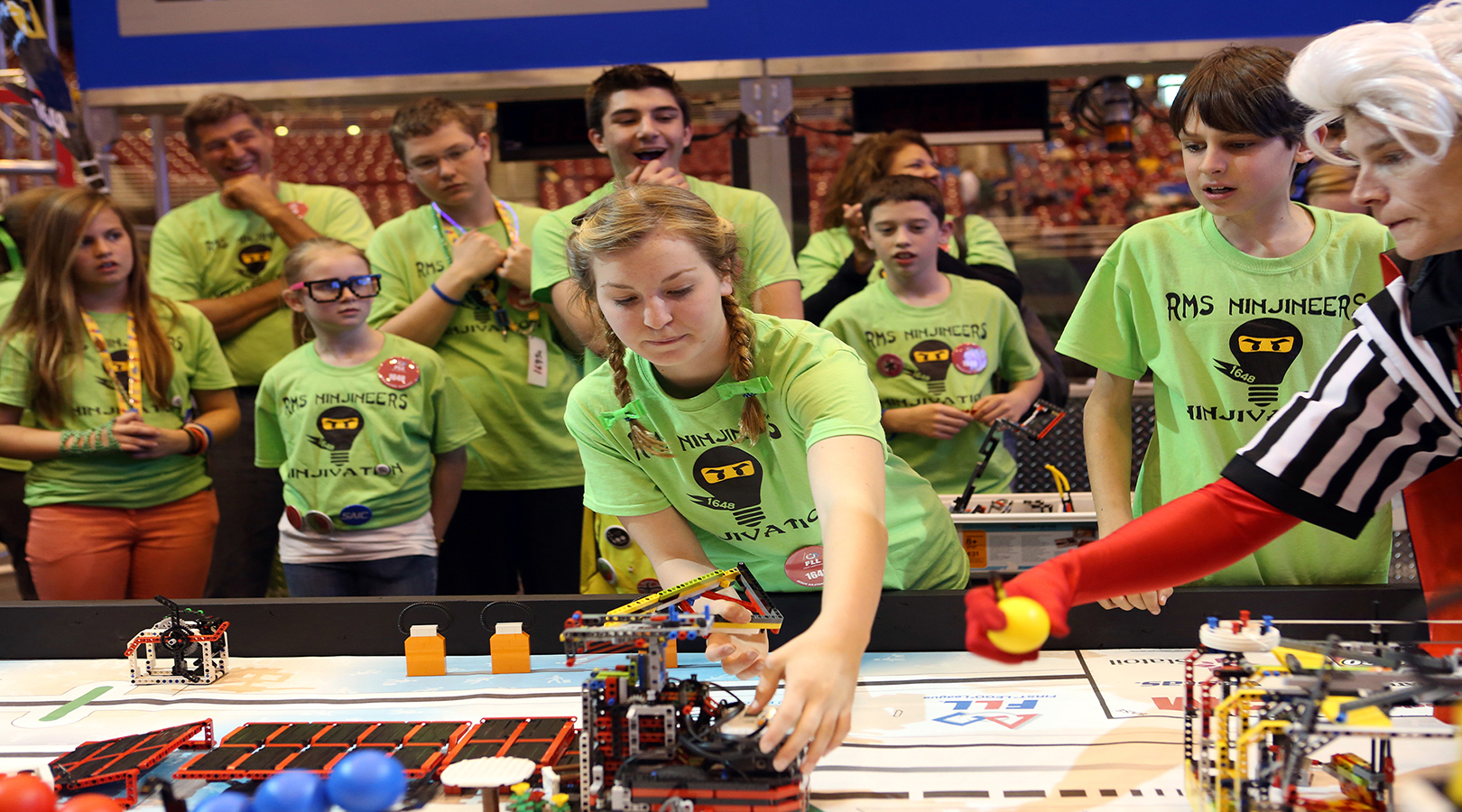
Port Macquarie Basketball Association's annual Seaside Classic carnival will be held at the stadium over the weekend of the 2nd & 3rd of November 2019.

COMPUTER CAPERS is back on this school holidays. CLICK HERE for more information.
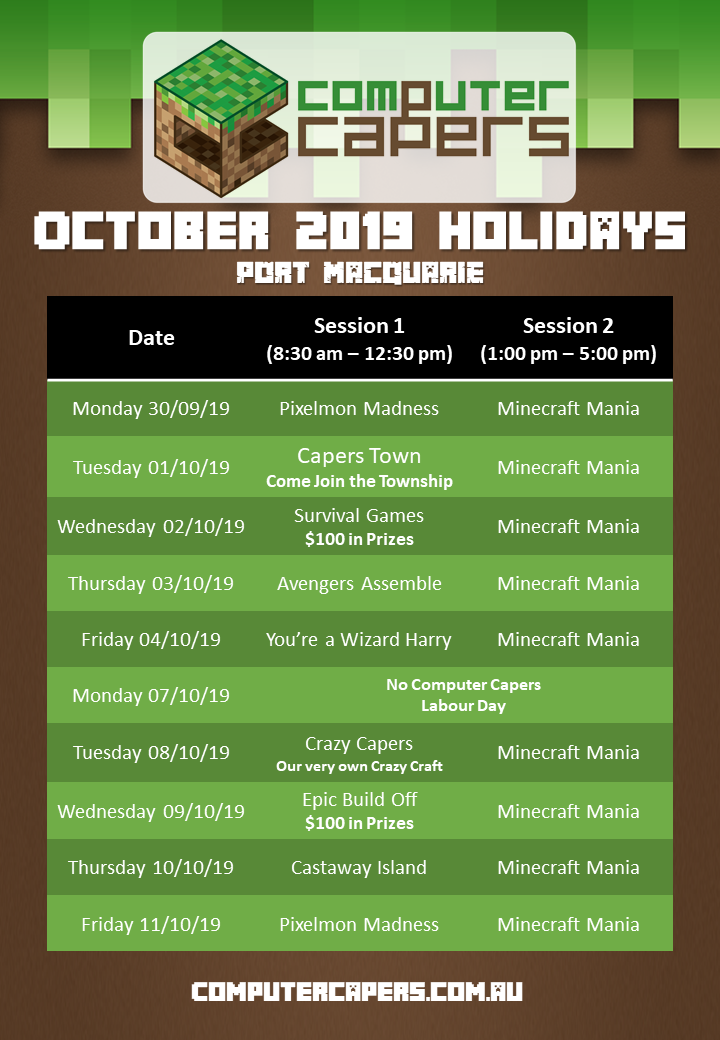


SCHOOL HOLIDAYS ARE COMING UP! The SCHOOL HOLIDAY PROGRAM is back this OCTOBER!
Got to work?
Need somewhere for your kids to spend the day?
Want to get them active & looking to bust that holiday boredom?
Get them out of the house and out of your hair!
Bring your child along for a day of fun & games at Port Macquarie Indoor Stadium! Only $25.00 a day per child.
Places are limited so book your child in to avoid disappointment.
CLICK HERE for more info & an enrollment form.
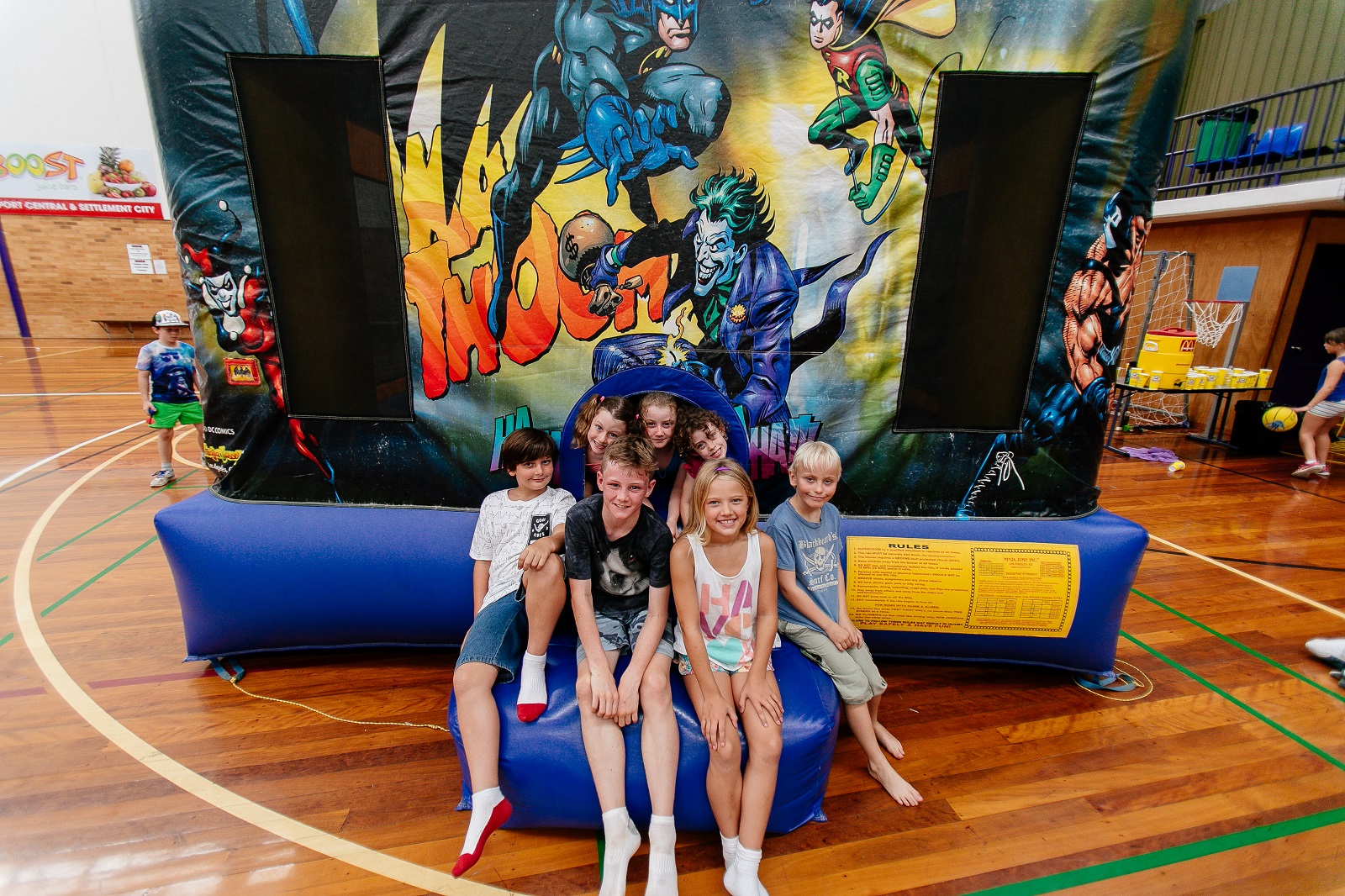
NJL BASKETBALL FINALS are on this weekend. Games will be played on both Saturday 27th July & Sunday 28th July.
GAME OVER CAFE will also be open all weekend cooking up a BBQ and serving COFFEE plus cold drinks, sandwiches and more!
Please Note: The courts will not be available for casual use this weekend.
This Saturday, the Port Macquarie Dolphins take on Hills Hornets in the last round of the Men's State League Basketball competition.
Tip Off @ 6.00PM

SCHOOL HOLIDAYS ARE COMING UP! The SCHOOL HOLIDAY PROGRAM is back this JULY!
Got to work?
Need somewhere for your kids to spend the day?
Want to get them active & looking to bust that holiday boredom?
Get them out of the house and out of your hair!
Bring your child along for a day of fun & games at Port Macquarie Indoor Stadium! Only $25.00 a day per child.
Places are limited so book your child in to avoid disappointment.
Click here for more info & an enrollment form https://www.portstadium.com.au/facil…/school-holiday-program
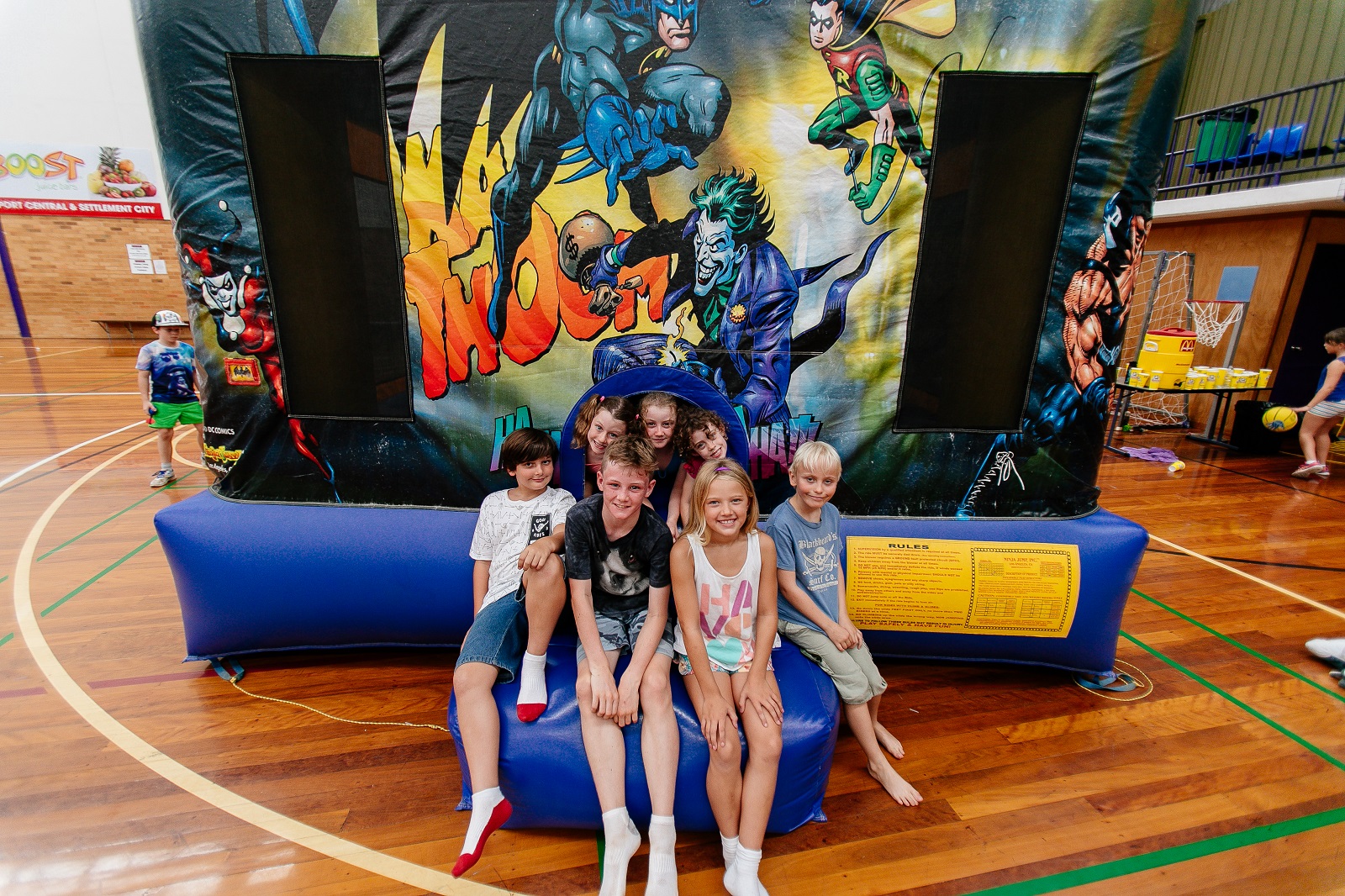
 MINECRAFT MARATHON RETURNS DURING THE JULY SCHOOL HOLIDAYS - COMPUTER CAPERS IS BACK!
MINECRAFT MARATHON RETURNS DURING THE JULY SCHOOL HOLIDAYS - COMPUTER CAPERS IS BACK!
Looking for something to do with the kids over the school holiday break? HELP IS AT HAND! Check out Computer Capers Holiday Program. These school holidays computer capers are offering 10 fantastic days starting on Monday the 8th of July 2019, finishing on Friday the 19th of July.
NEW HOURS - 8.30am - 5.00pm at the Port Macquarie Indoor Stadium.
BOOK NOW!
Sessions are filling up fast, booking now is essential.
If you would like any more information about the services we provide pop over to our Website or Facebook Page, or email us at port@computercapers.com.au
Port Macquarie Dolphins v Tamworth Thunderbolts
Tip Off @ 10.15AM
Port Macquarie Dolphins v St George Saints
Tip Off @ 6.00pm
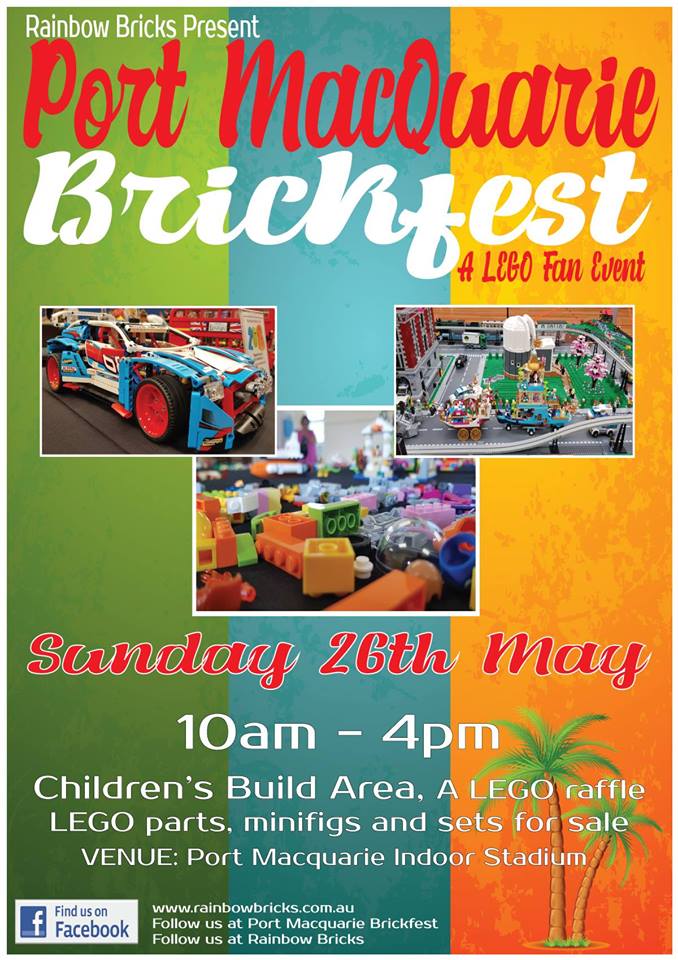
Rainbow Bricks heads back to Port Macquarie Indoor Sports Stadium with the Port Macquarie Brickfest 2019.
DATE: Sunday 26th May
VENUE: Port Macquarie Indoor Stadium
TIME: Sunday 10am - 4pm
COST: $5 per person or $15 a family.
There will be lots of new exhibits as the Lego builders have been busy building since last year's event. Talk to the creators about their displays and see what can be done with Lego bricks and some imagination. Check out some old favourite exhibits such as the City layout with moving parts, lights and trains.
After being inspired by the exhibits there are plenty of hands on activities to get involved in.
Activities include:
*Tower Building - Help build a huge train tower.
*Remote Control Trackers - Control the RC Tracker set in the driving area.
*Colouring In - Colouring in competition for the under 12s.
*LEGO Raffle - LEGO prizes to be won.
There will be Lego for sale and proceeds go to local schools and community groups. So come on down to the stadium for some family fun and creative inspiration.
Visit the Port Macquare Brickfest facebook page for more information.
SCHOOL HOLIDAYS ARE FAST APPROACHING! The SCHOOL HOLIDAY PROGRAM is back this April!
Got to work?
Need somewhere for your kids to spend the day?
Want to get them active & looking to bust that holiday boredom?
Get them out of the house and out of your hair!
Bring your child along for a day of fun & games at Port Macquarie Indoor Stadium! Only $25.00 a day per child.
Places are limited so book your child in to avoid disappointment.
Click here for more info & an enrollment form.
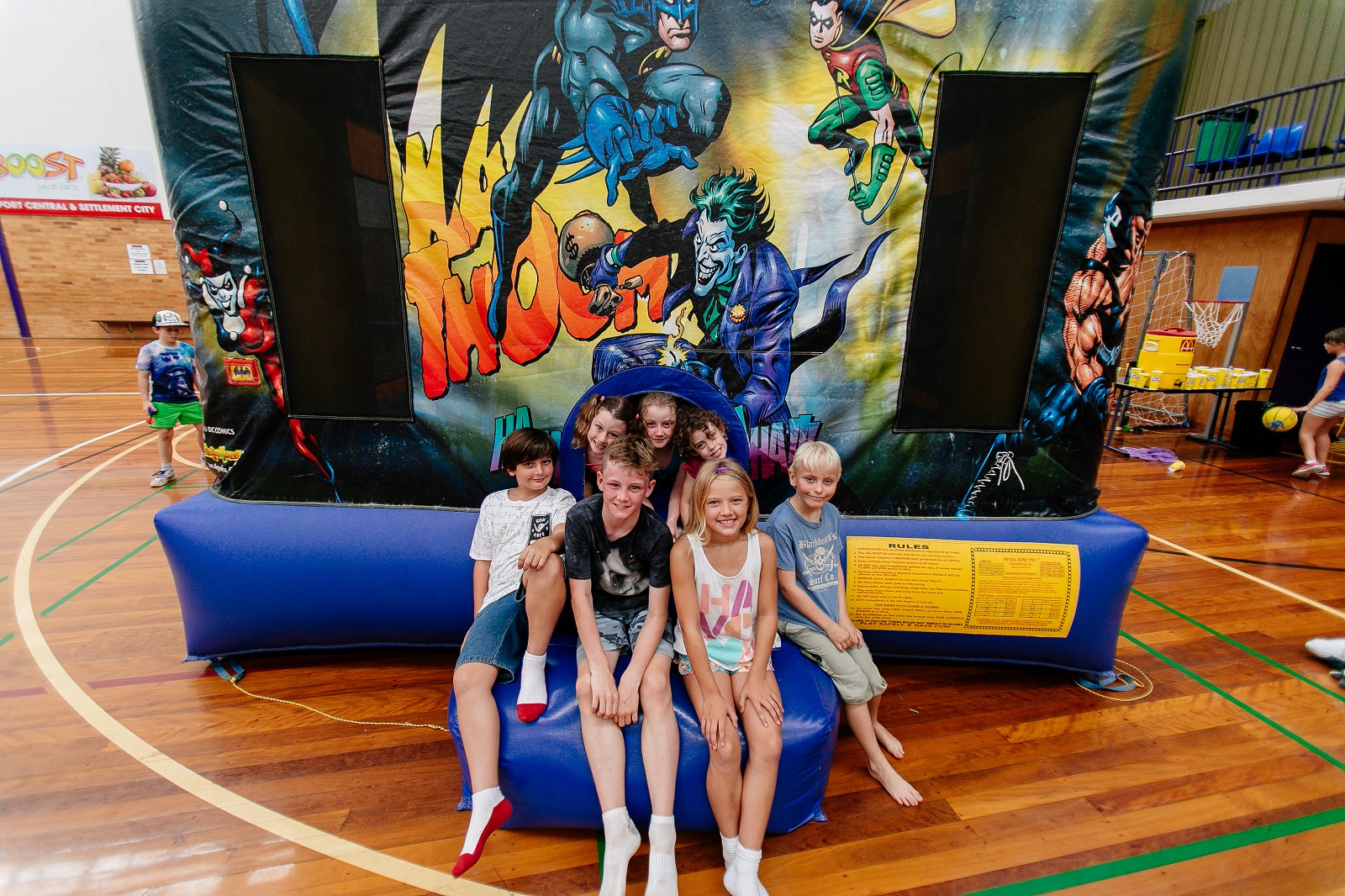
STATE VOLLEY BALL this weekend - 6th & 7th April 2019
Come down and catch some of the action!
Please Note: There is no casual shooting this weekend. We apologise for any inconvenience.
Computer Capers will be back on at the stadium these April school holidays. Click here for dates and more information!
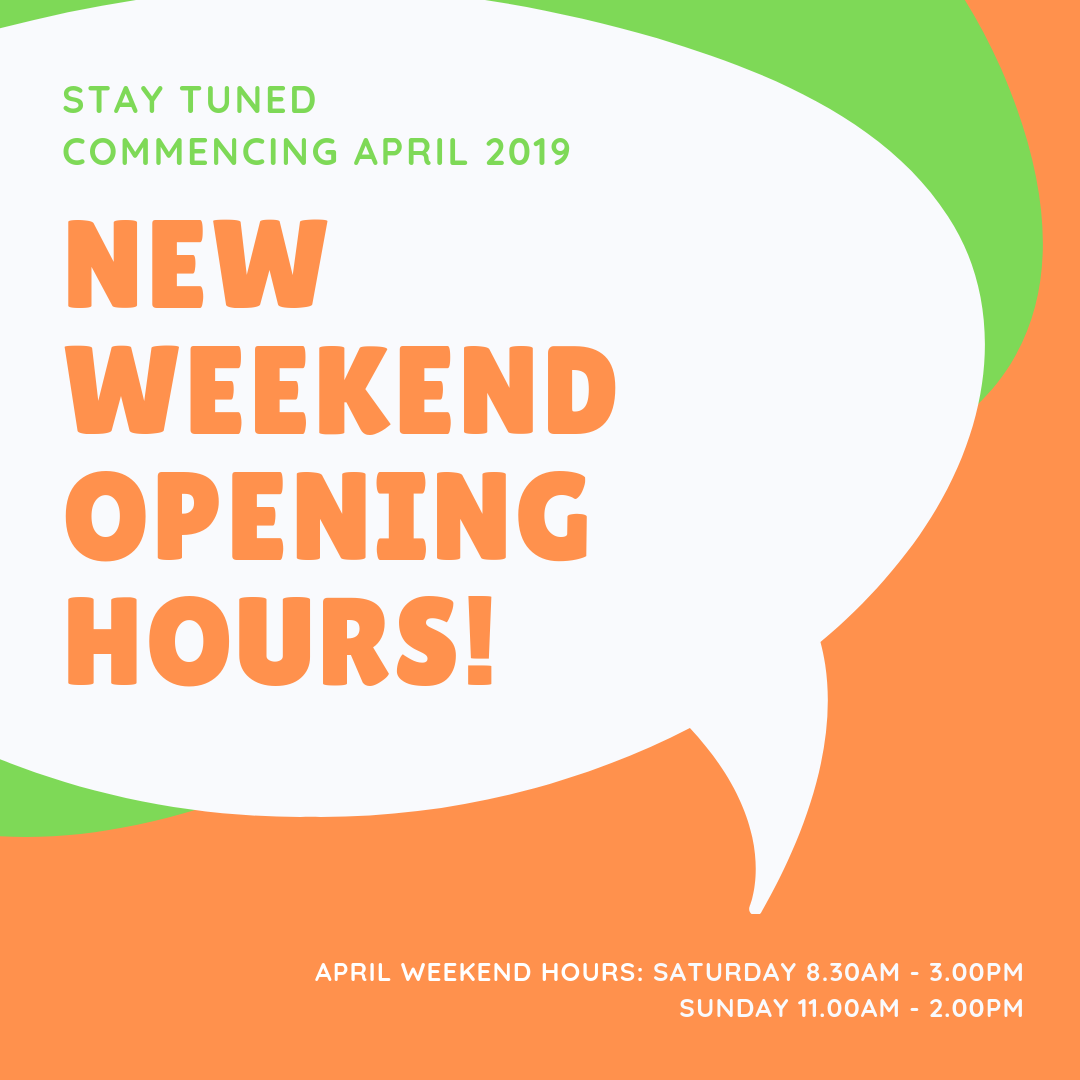
Please Note: Hours are subject to change. Keep and eye on our website and facebook page for altered opening hours as carnivals and other events can affect weekend bookings and casual use.
State League Basketball is on this Saturday 16th March, 2019.
Come and watch Port Macquarie Dolphins v Central Coast Crusaders.
Doors Open: 5.00PM
Tip Off: 6.00PM
There is lots happening at the stadium in the next couple of weeks. Here are some dates to keep in mind.
School Futsal
All of next week.
Monday 18th - Friday 22nd March
9.00AM - 4.00PM
Northern Junior League Basketball
Two upcoming weekends of NJL.
Saturday 23rd & Sunday 24th March
Saturday 30th & Sunday 31st March
Please Note: Casual shooting will not be possible these weekends.
State Volleyball Carnival
Saturday 6th & Sunday 7th April
Please Note: Casual shooting will not be possible this weekend.
School Holiday Program April 2019
|
WEEK 1 |
WEEK 2 |
|
Monday 15th April 2019 |
EASTER MONDAY (Closed) |
|
Tuesday 16th April 2019 |
Tuesday 23rd April 2019 |
|
Wednesday 17th April 2019 |
Wednesday 24th April 2019 |
|
Thursday 18th April 2019 |
ANZAC DAY |
|
GOOD FRIDAY (Closed) |
Friday 26th April 2019 |
Click Here for more information and how to enroll your child.
JANUARY 2019:
BADMINTON (SOCIAL): TUESDAY 29TH JANUARY
THE DOJANG: TUESDAY 29TH JANUARY
DANCE: TUESDAY 29TH JANUARY
GYMNASTICS: WEDNESDAY 30TH JANUARY
FEBRUARY 2019:
BADMINTON (SENIOR): FRIDAY 1ST FEBRUARY
SPROCKETS: MONDAY 4TH FEBRUARY
FUTSAL (JUNIORS): MONDAY 4TH FEBRUARY
MULTISPORTS: THURSDAY 7TH FEBRUARY
VOLLEYBALL: TUESDAY 12TH FEBRUARY
FUTSAL (MIXED): TUESDAY 12TH FEBRUARY
FUSTAL (SENIORS): WEDNESDAY 13TH FEBRUARY
BASKETBALL (JUNIORS): MONDAY 18TH FEBRUARY
BASKETBALL (SENIORS): WEDNESDAY 20TH FEBRUARY
BASKETBALL (AUSSIE HOOPS/ UNDER 10’S): THURSDAY 21ST FEBRUARY
GAME OVER CAFE IS BACK TO NORMAL TRADING
OPENING HOURS:
WEEKDAY'S 8.30AM - 1PM / 3.30PM - LATE
SATURDAY'S 8.30AM - 12NOON
Student Heart Project delivered our AED on Wednesday Evening along with information and a training session to our staff on how to use the device in an emergency situation.
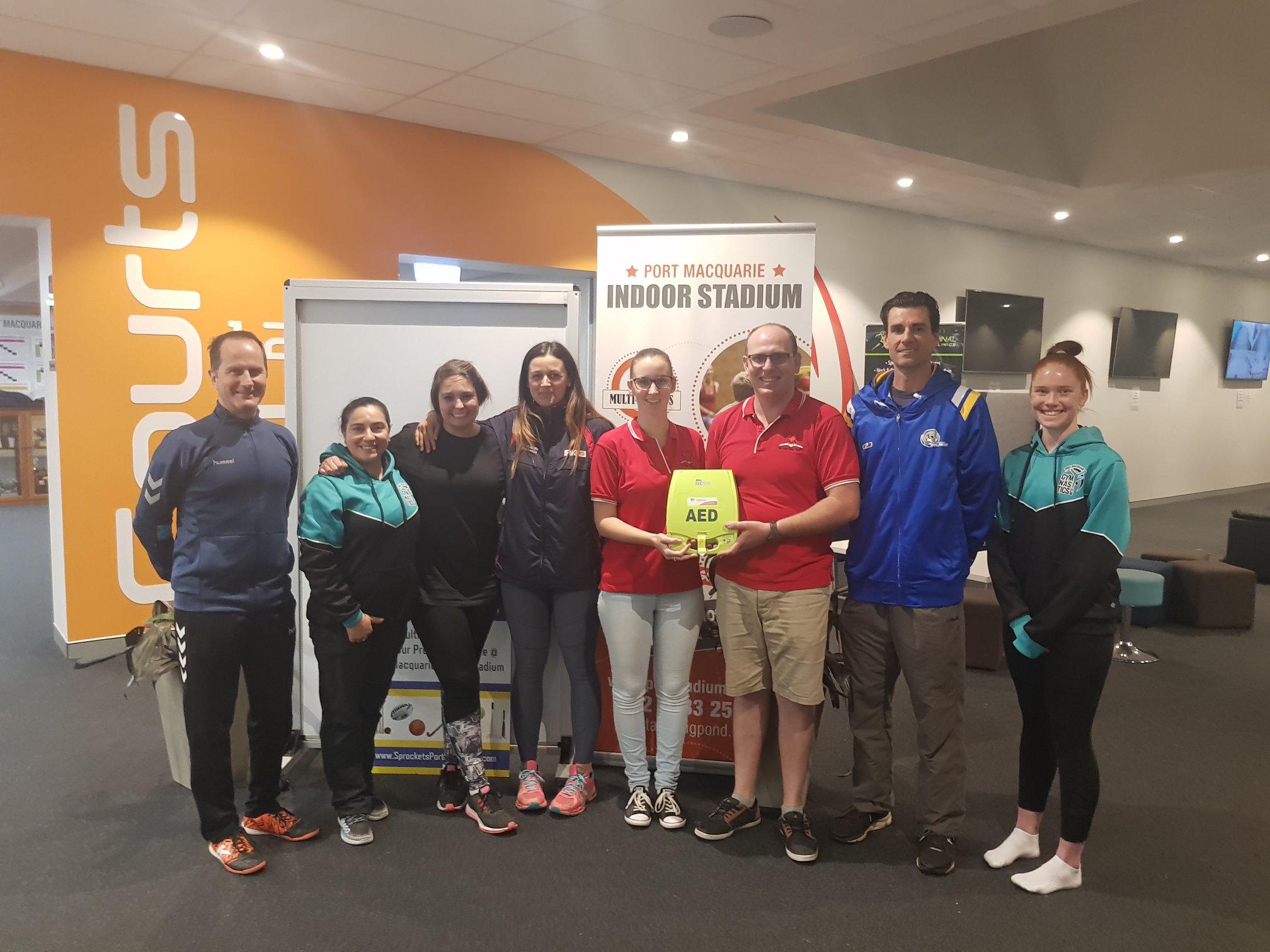
This week the NSW Champions of Champions is being held at the Port Macquarie Indoor Sports Stadium with the top schools from FNNSW competing to earn their place in the Australasian Championships in Nov 2018 & be crowned Champions.
The top schools from School Title tournaments held throughout Term 2, now see schools from all regions including Taree - Tamworth - Armidale - Port Macquarie - Wauchope - Coffs - Grafton/Lismore - Byron Bay - Woodenbong, battling it out over the 4 days.
Good luck to all Schools and Teams/coaches/teachers/staff
Multi-style martial arts tournament - Round 1
For all the information please visit AMAC website: click on this link to their website
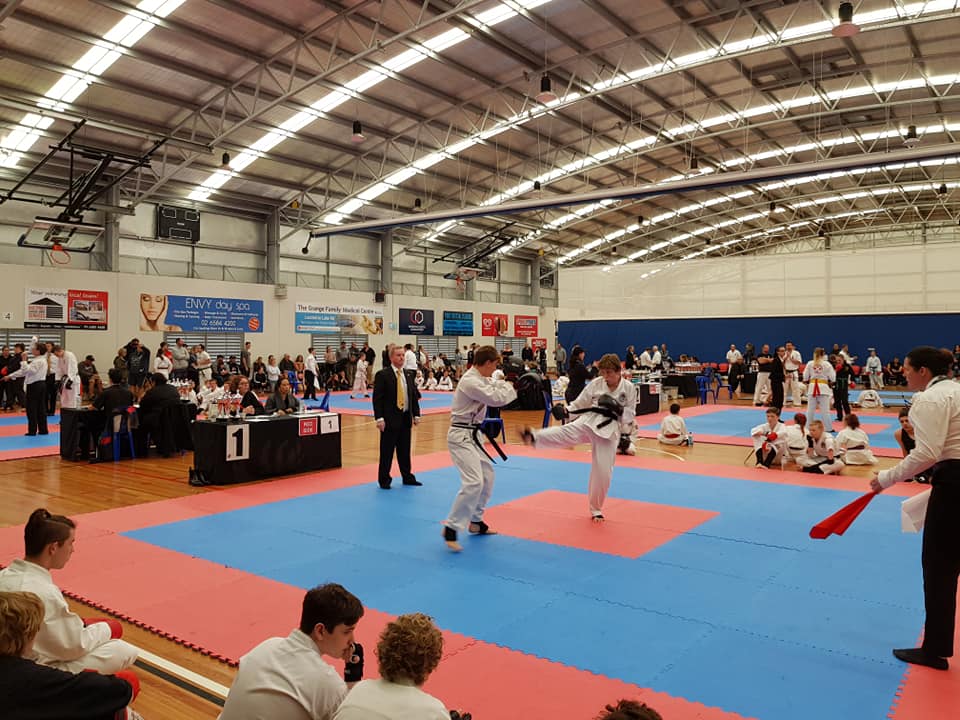
July School Holiday Program 9th July-20th July 2018. Enrol now: Enrolment Form
Here at the indoor sports stadium on the 2nd of June 2018. For general enquiry or more information visit their website directly: here
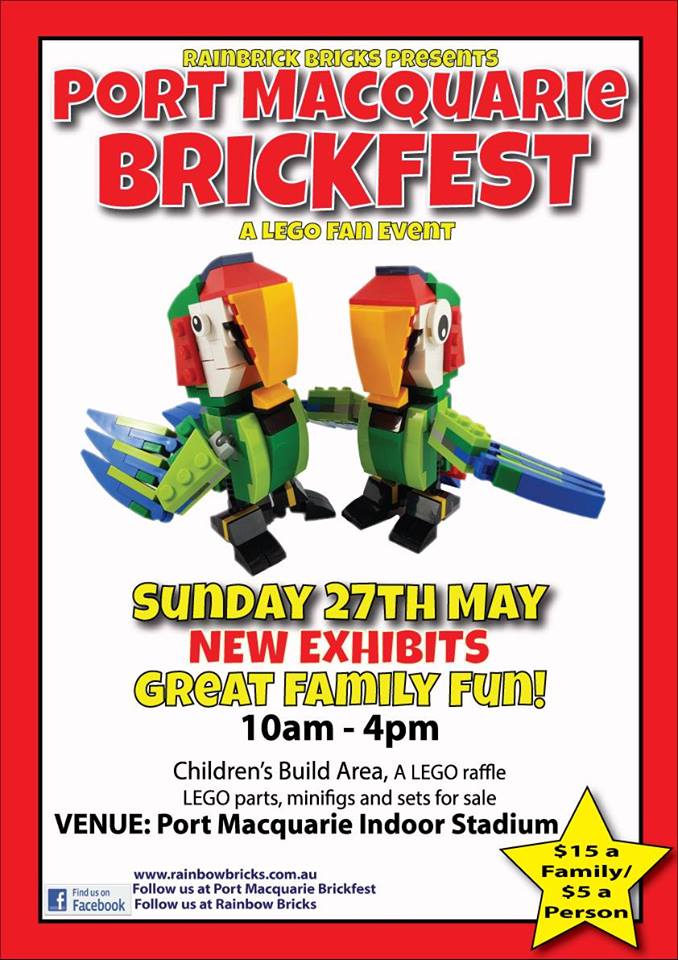
For more information see their Facebook page:
or visit their website: http://rainbowbricks.com.au/blog1.php
For information and booking form see here: https://www.portstadium.com.au/facilities/school-holiday-program
TRIAL- 3PM Newcastle V Coffs Harbour | 6PM Port Macquarie V Coffs Harbour
25th March 12NOON Port Macquarie V Newcastle.
For general Enquiries and more info see this website: http://www.bnsw.com.au/
Held here at the indoor sports stadium 20th, 21st & 22nd March. Visit this website for general enquiries: http://www.nswvolleyball.com/
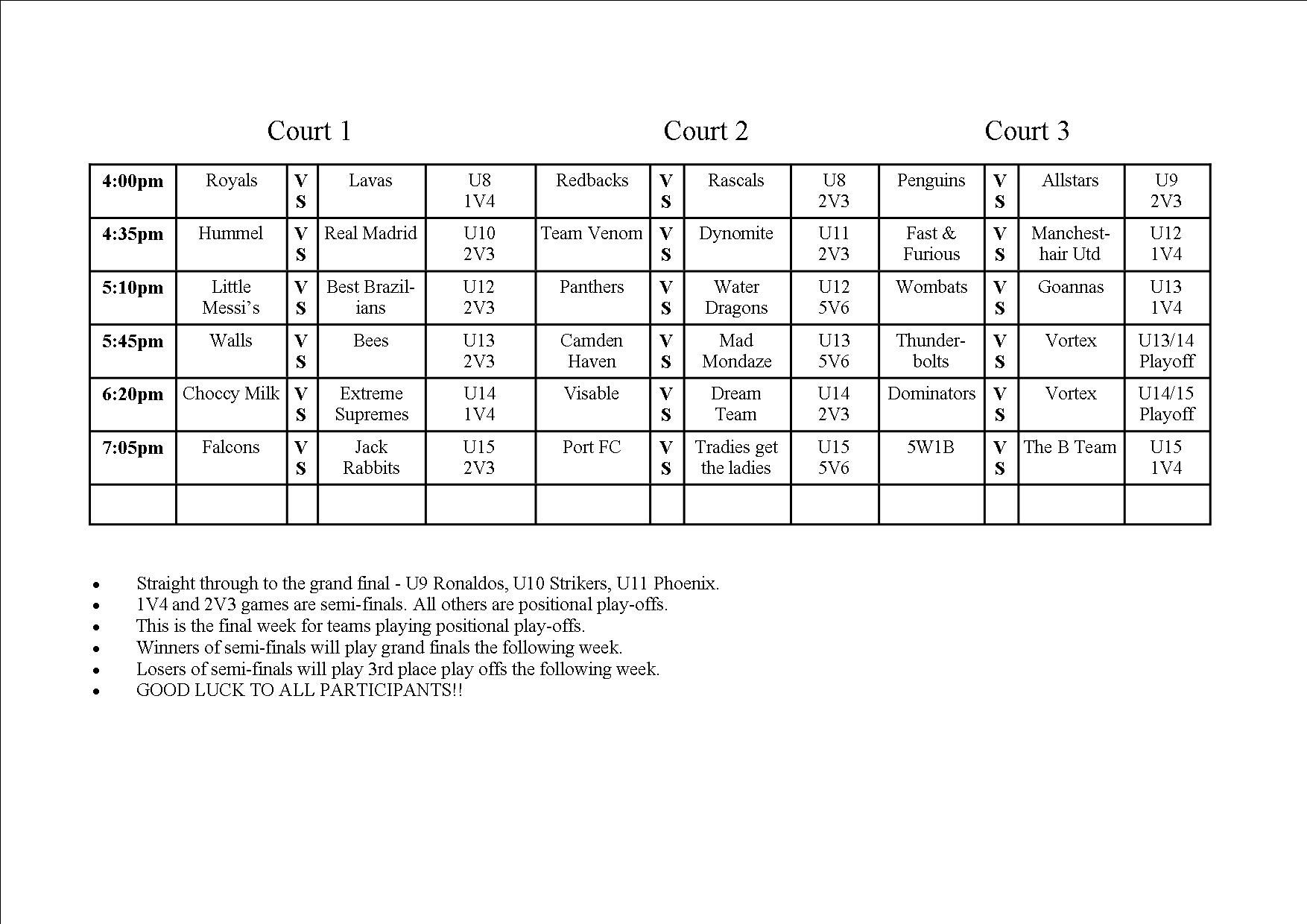
3rd & 4th March 2018 here at the Indoor Sports Stadium. For general enquiries please contact NSW Basketball directly. website: http://www.bnsw.com.au/
For general enquiries please visit their website directly: http://websites.sportstg.com/assoc_page.cgi?client=1-9049-0-0-0
Welcomes you back 30th January 2017. For general enquires please visit their website directly: https://www.facebook.com/PMQgymnastics/?ref=py_c
Starts back Tuesday 16th January 2018 at 5pm until 7.15pm. We will also be open to social shooting during this time, please pay your $3 at reception prior to entering the courts.
The school holiday activity days are designed for all children attending primary school (Kinder to Year 6) in 2017/18. These days incorporate group and team sports along with colouring in & arts tables, jumping castles and a movie in a social and safe environment.
OR click here for more information

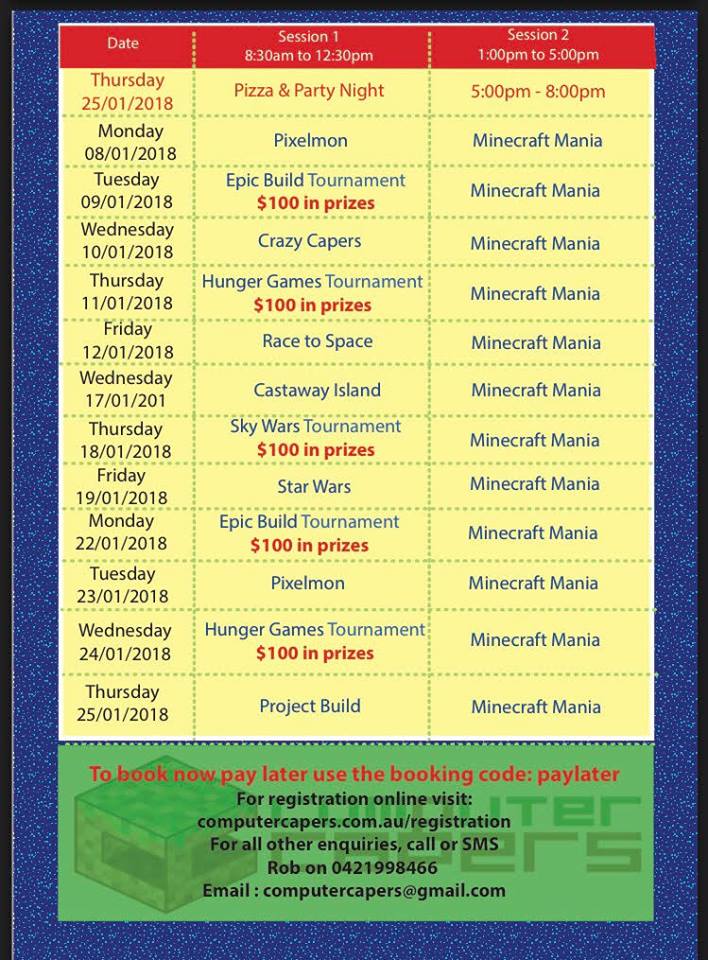
Saturday 4th November & Sunday 5th November. For more information please visit their website: Follow Link
Saturday 27th October - Sunday 28th October hosted by Special Olympic NSW. For more information please see their website: http://www.specialolympics.com.au or their facebook page event: https://www.facebook.com/events/425559121118313
Discover, explore and build with Minecraft in a safe, fun environment. Sessions include Survival Island, Jurassic Encounter, Underwater World 2, Galactic Space Adventure, Pixelmon, and much more. All computers supplied. Suitable for children from Kindy to year 10. Classes running from Friday 22nd September to Friday 6th October 2017. For more information visit: www.computercapers.com.au or contact Rob via Email: computercapers@gmail.com Phone or Text: 0421998466
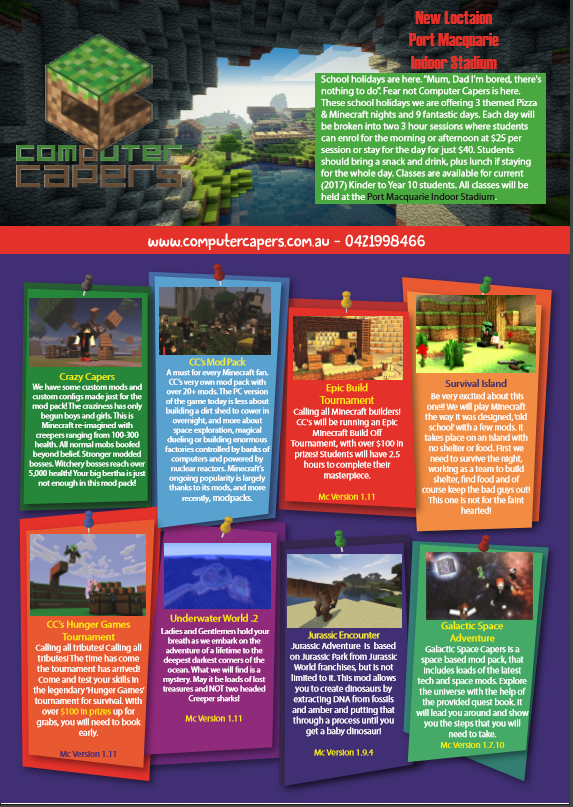


For more information or to register please follow this link: http://eurekaexplorers.com.au/register/
Starts Monday 16th of October FOLLOW THE LINK for more information.
Saturday 5th & Sunday 6th of August held at the Port Macquarie Indoor Sports Stadium.
Mixed competition Thursday 27th July - Thursday 7th December 2017. (no games: School Holidays 28th September & 5th October)
Commences Tuesday 25th of July 2017.
Division 1 NJL to be played at the stadium from Saturday 13th May - Sunday 14th May
Currently running over the Easter Break
The ASN Futsal Cup will be played at the Stadium from 25th - 26th March 10am - 5pm both days. Spectators more then welcome to come and watch. Café will be open!!